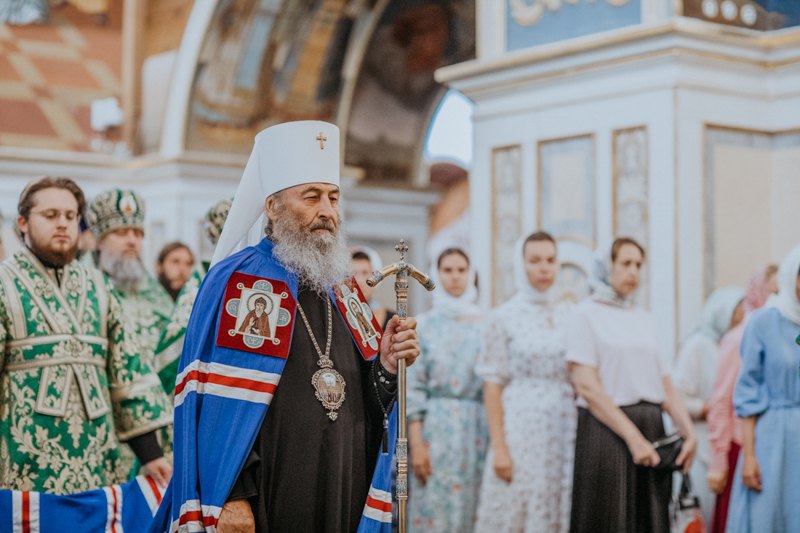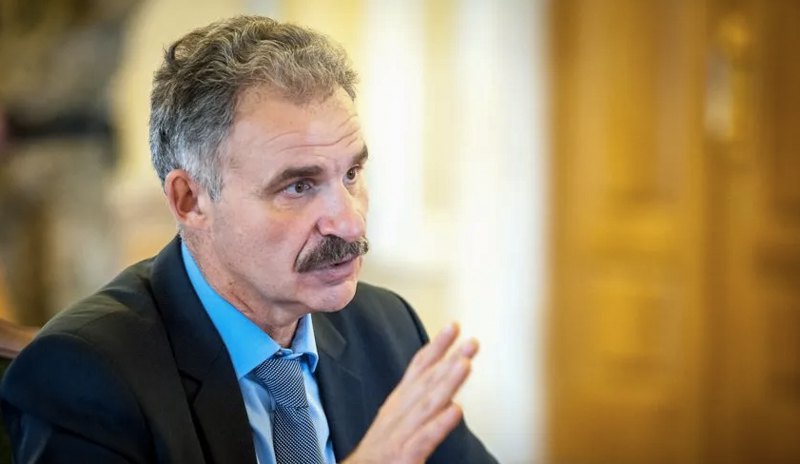
"No church has ever been banned in Ukraine. Not even the White Brotherhood"
The Ukrainian Orthodox Church (formerly of the Moscow Patriarchate) is now quite feverish as several bills seeking its ban have been submitted to parliament. One of them, already recommended for adoption in the first reading, was authored by Mykola Knyazhytskyy. Have you had time to read it and what do you think about it?
It is clear that in Ukraine it is impossible to simply go and ban any church. There are many reasons for this. First, the church itself is not a legal entity. This is an atavism of the Soviet era, but in Ukraine it has taken root: every community, monastery, fraternity, centre of diocesan administration is a legal entity, but the whole church is not.
Second, you also know that in our country there was once a huge demand for the unification of the Orthodox. When the assembly began on Sunday (during EuroMaidan - Koshkina) and representatives of different churches prayed, the Maidan was buzzing: "Unity, unity.? Everyone wanted to see the Orthodox in Ukraine united. But now there is no such demand, there is a public demand that there should be no structures of the Moscow Patriarchate in the country. I think that the answer to this demand is the bill, the first author of which is Mykola Knyazhytskyy. However I have to join those critics who believe that the state cannot give the church the right to implement state tasks if there is a regime of separation of church and state.
Of course, it is possible to delegate some functions, such as spiritual care in those institutions whose residents do not have the opportunity for this care – for example, in hospitals, prisons, and, of course, in the army. But in this case, it is proposed that the Orthodox Church of Ukraine should determine who is Orthodox and who is not. It seems to me that this is a dubious novelty, and it is unlikely that the Orthodox Church of Ukraine will be delighted if it is entrusted with such a function. And the state, in fact, has no right to entrust it with such a function.
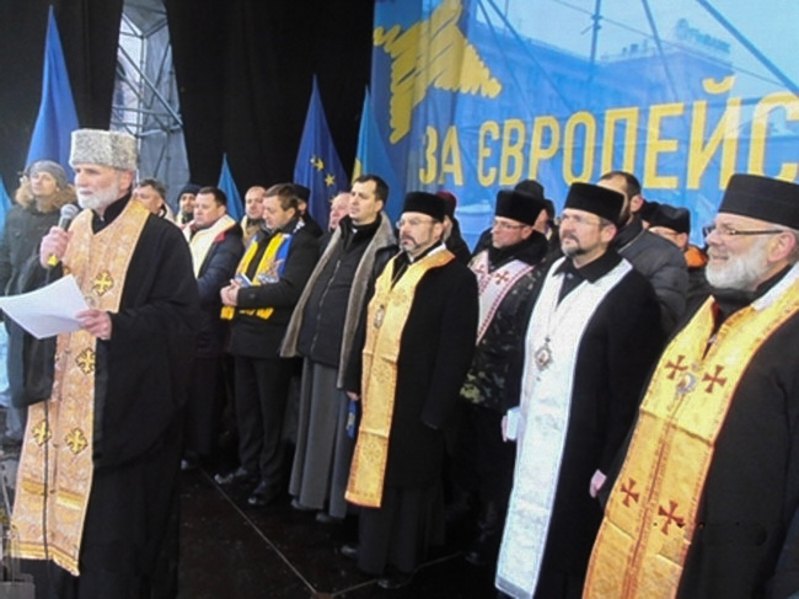
The third is that after the Russian Orthodox Church became one of the ministries of the Russian Federation, and not the most influential one, but did a lot to ensure that Patriarch Kirill was not the first, but also not the second student in the school of hatred against Ukraine, I think that the structures of the Moscow Patriarchate will have no place in Ukraine.
How to resolve this contradiction: on the one hand, the law really cannot prohibit it (according to the Constitution, Ukraine is a secular state, meaning the state does not interfere in church affairs. It is impossible to change the Constitution during martial law - Koshkina), and on the other hand, there is a demand that there should be no structures of the Moscow Church in Ukraine?
Such resolution depends to a large extent on the Ukrainian Orthodox Church, which announced in May that it was removing all references to the Moscow Patriarchate from its statute. But we have seen that in fact the connection with the Russian church has not been interrupted. All the signs that should be present in a church that comes out of the church of which it was a part are absent. I think that the hierarchy of the Ukrainian Orthodox Church, which removed references to the Moscow Patriarchate from its statute, but remains a part of the Russian Church – and refers to the missive of Patriarch Alexy II, who has been dead since October 1990 – understands this. But it cannot or does not want to break this connection because it fears that it will find itself in the state in which the Kyiv Patriarchate was from 1992 to 2018, that is, in a state of uncertainty.
Non-canonical, I would say. The CP was not and never became canonical.
But the situation in which the UOC-MP may find itself is fundamentally different from the one with the Kyiv Patriarchate, at least because it can enter into a dialogue with the Orthodox Church of Ukraine, with the church that ranks 15th in the diptychs, that is, in the table of ranks, so to speak, of the Orthodox world, and talk about possible models of acquiring canonical status. In fact, there are many such models.
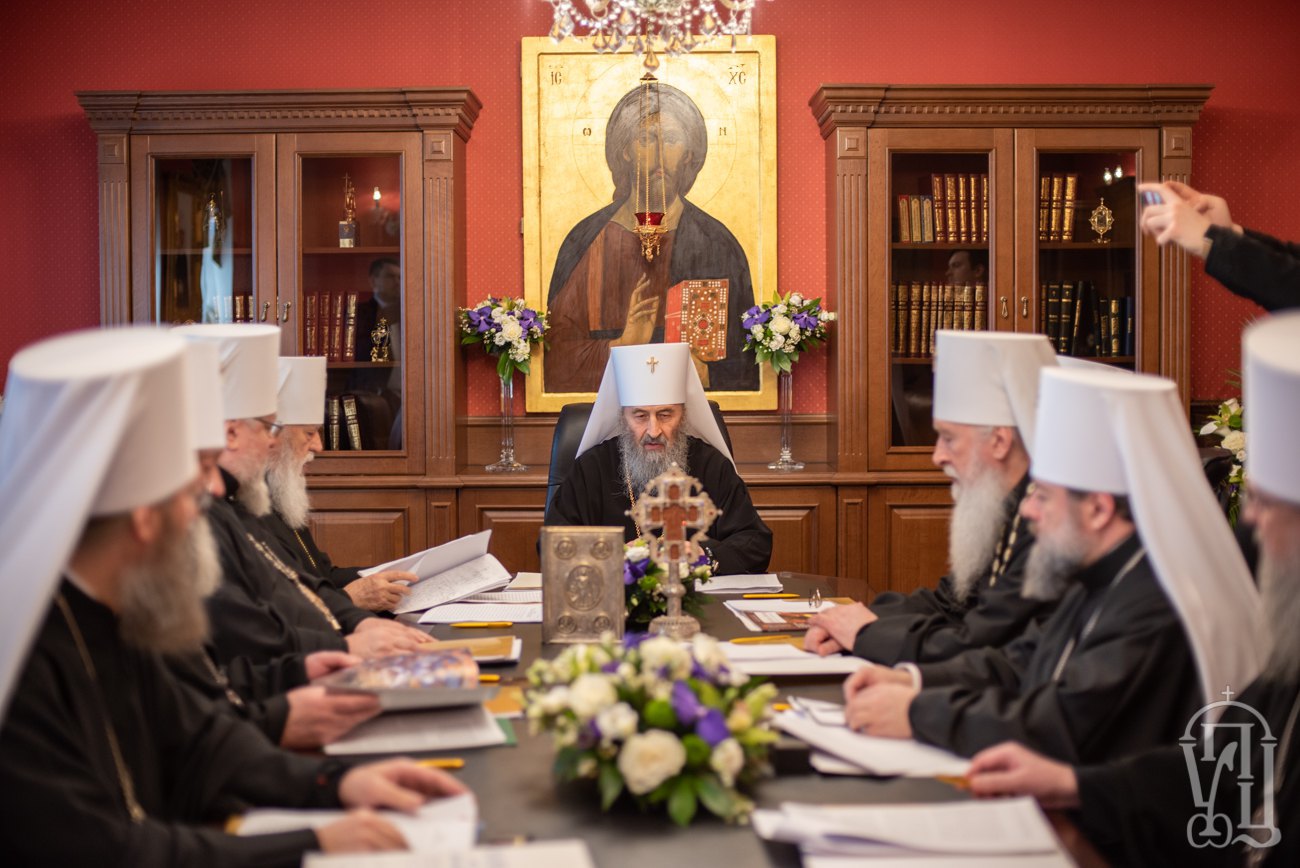
Why did I ask about the details of the bill? It stipulates tough restrictions on religious organizations that have a control centre in the territory of the aggressor state. But in 2018, a similar law was already adopted. Actually, the 27 May 2022 meeting of the Council, which you have mentioned, was held with a view to, among other things, escaping its action.
There is a law that obliges religious organizations that have a centre in the aggressor country to be called according to the name of their centre. But it does not prohibit them. That is, they should have been renamed for a certain period of time, but the law was not implemented and is not being implemented now. In a certain part it was blocked by the notorious District Administrative Court of Kyiv, in another part it is absolutely valid, but they do not want to implement it – the heads of the state body on religious affairs directly said that they will not implement this law, although, I repeat, it is valid. The fact that it is under consideration in the Constitutional Court does not negate the need to implement it.
Moreover, the recent decision of the European Court of Human Rights case of Ilyin v. Ukraine, which in principle states that the state may resort to such restrictions as naming churches, religious organizations in an appropriate way so as not to mislead people who have joined or will join this religious organization. That is, these are different laws.
But if you want, we could model the situation with, so to speak, a ban on the church.
Yes.
First, let me remind you that no church has ever been banned in Ukraine. We are very proud of the level of religious freedom in the country. This level is incommensurable not only with neighbours from the north and east, but sometimes with some Western European countries, where there is a hierarchy of churches, where the law does not define the equality of these churches before the law, that is, the Ukrainian model is essentially closer to the United States than to the European model. And even the White Brotherhood was not banned at the time. And every time the activity of a religious organization is annulled, suspended or stopped, it must be done in accordance with a court decision. But the activity of a religious centre or religious administration or a certain religious organization can be suspended by the court, the law allows it.
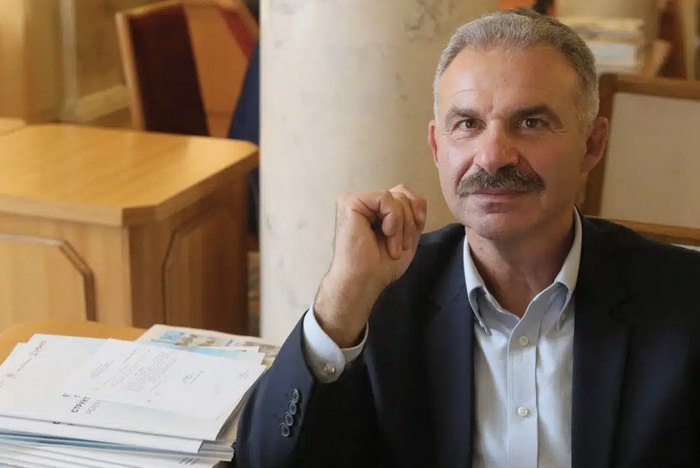
And again, we will model the situation: if the centre or some religious administration is prohibited, the communities that are part of this administration, in principle, can remain and act at their discretion. For example, I know that now there are many Orthodox communities that would like – perhaps contrary to canon law, but the law allows it – to register as autonomous religious communities. That is, they consider themselves Orthodox, but they are not subordinate to any religious centre or administration.
Let's model another situation. The law is adopted, but the UOC-MP says: sorry, we have no connection with the Russian Orthodox Church, we confirmed this by making amendments to our statute on 27 May. Yes, we did not publish them, we did not send out the letters of peace – which Metropolitan Onufriy should have done – to the representatives of world Orthodoxy. But this is our word against yours. What should be done in such a situation?
In such a situation, the state authority on religious affairs is obliged, as stated in the law "On Freedom of Conscience" and the regulations of this body, to conduct a religious examination – not a legal, but an impartial church-economic examination, which should answer the question whether there is a church-economic connection with this or that centre. I think that there are enough specialists in Ukraine, including those in economic law, who will be able to conduct this examination and establish whether such a connection exists or not.
"Patriarch Bartholomew has long pointed out that the practices of Russian Orthodoxy have signs of chauvinism, militarism and imperialism"
The state has already imposed sanctions on certain figures of the UOC-MP twice. How effective are they, in your opinion, because the main tools are the blocking of assets and restriction of trade operations. In truth, bishops, and especially priests, in principle, cannot have their own assets. They, of course, have them. Will these sanctions really affect them?
In fact, monks, bishops in the Orthodox Church, they all take a corresponding vow and should not own property, especially assets. But we know that...
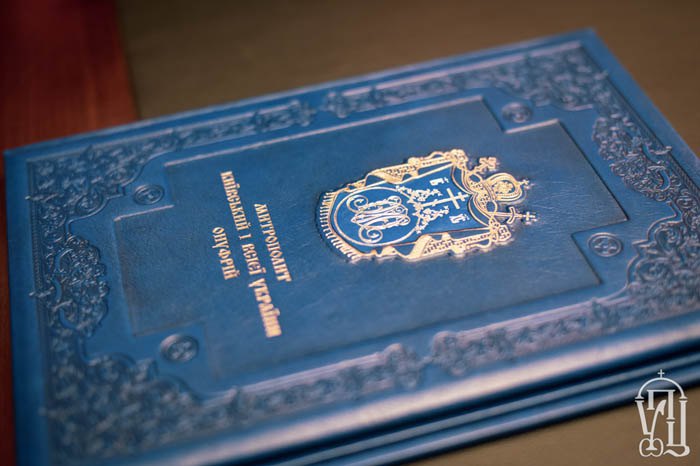
Not all of them, but.
Well, we will proceed from the presumption of their compliance with the vow they took. They may have a large amount of property registered in their names, but, according to them, this property works for the church. And, of course, these (sanctions – Koshkina) largely concern these assets. But to an even greater extent it is a sign that the state gives to a person or group of persons that it does not consider this group or this person loyal. Of course, to the greatest extent, sanctions can work against the employees of the department for external church relations of the Moscow Patriarchate, who are very active in traveling the world and very actively spreading what Ecumenical Patriarch Bartholomew recently called heresy, damage to the true Orthodox faith.
I will clarify this for our readers. Patriarch Bartholomew delivered a truly historic speech in Abu Dhabi. In it, in particular, he actually linked the concepts of "heresy" and the "Russian world". Although it was not said directly, the hint was obvious.
Yes. Patriarch Bartholomew has long pointed out that there are signs of chauvinism, militarism, and imperialism in the social concepts, speeches, and practices of Russian Orthodoxy. He spoke about this even before the war, but now this ugly mixture just spilled out – especially on our country. Therefore, in Abu Dhabi he spoke about it very directly, largely referring to the Gospel, the Holy Fathers. And he spoke very, very unambiguously.
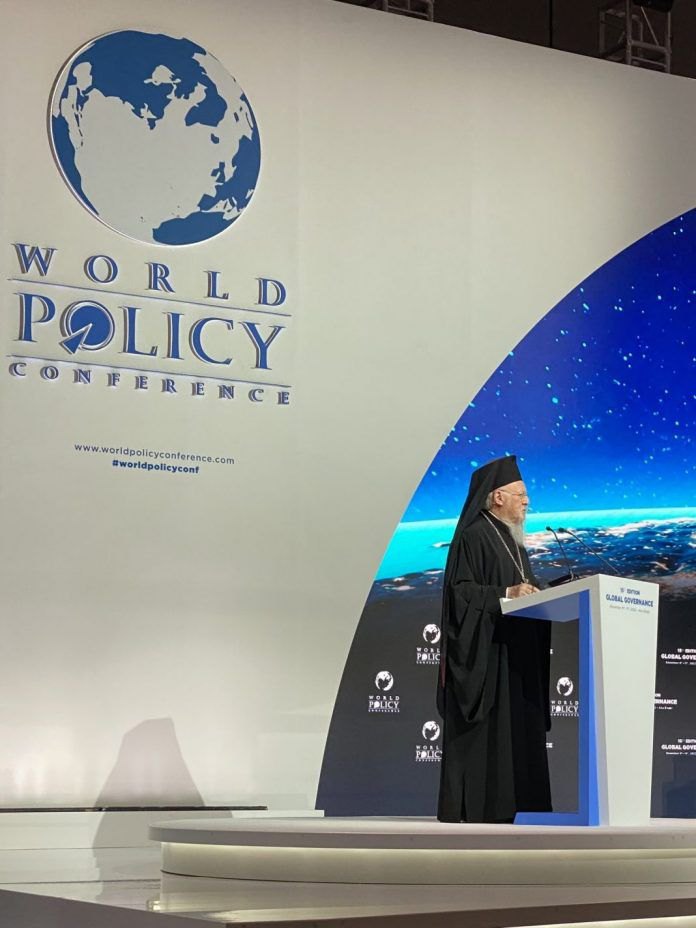
"Kirill has already earned an afterlife retribution for all his actions"
In your opinion, has the outlook of the clergy and hierarchs of the UOC (of the former MP) changed after 24 February? On the one hand, we have heard quite harsh words of Metropolitan Onufriy about Russia and even such characters as Iona Cherepanov, but they are in no hurry to break with the ROC. Is it just fear of becoming a non-canonical "second Kyiv Patriarchate" or anything else?
When Metropolitan Onufriy condemned the Russian invasion on 24 February, it was such a shocking statement. He spoke about the sin of Cain, who killed his brother. That is, it was completely unexpected for him, as well as for Abel, who was killed by his own brother. Obviously, he considered the Russians brothers, obviously, he had some signals that there would be no invasion. Many speakers of this church spoke about this. Of course, he could not but react to the despair of those priests, bishops who were under fire. He could not but react to the fact that they stop blessing the name of Patriarch Kirill during the liturgy in one diocese after another. First in Sumy, then in many other dioceses.
All this happened in the first days of the war. But gradually, it seems to me that the hierarchy – I am talking now about the hierarchy of this church – gradually caught its breath, and in their rhetoric the Orthodox Church of Ukraine and Patriarch Bartholomew became the main enemy again. If you take the Easter messages of the bishops of this church and compare them with the messages delivered by the bishops of the Orthodox Church of Ukraine, these are very different narratives. Some of the messages of the bishops of the Moscow Patriarchate do not speak at all about the situation in which its faithful find themselves, while other messages contain a wild mix of conspiracy theories. In extreme cases, they speak about what is happening in Ukraine in a very, very, very muffled way so as not to irritate the Moscow centre. And perhaps, I think that this way the situation would have been cemented, but there were factors that did not allow the clergy to pretend that nothing was happening.
First, it is the cannibalistic, I would say, position of Patriarch Kirill, who in 2014 ceased, as one insightful priest said, "to be our father, our father, and remained only our master". In 2022 he ceased to be both "father" and "master". If, fout of curiosity, you look at what the patriarch says during the war or with whom, for example, he sympathizes – he sympathizes with everyone: the victims of an explosion in a house (in Russia - Koshkina), someone killed in a stampede in a shopping centre, and so on. There is only no sympathy for Ukrainians. Not a single one. During these almost 10 months he has not expressed any sympathy. He talks about some gay parades, that Ukraine is to blame for allowing them to take place. In short, nonsense.
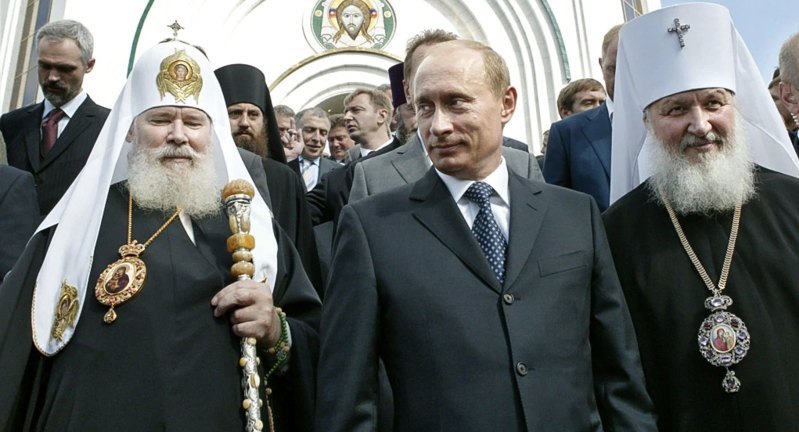
But I have seen another Kirill. I saw Archbishop Kirill of Smolensk, who said that Greek Catholics have the right to a decent expression of their religious feelings in the late 1980s. I saw when he and Patriarch Alexy addressed the New York rabbis, when Patriarch Alexy together with him apologized to the Germans for the fact that the Soviet army brought them not only liberation from Nazism, but also another kind of totalitarianism. That is, it was a completely different person.
And now he has lost... Of course, the last and only possible judgment on this matter belongs to God, but it seems to me that he has already earned an afterlife retribution for all these actions. Obviously, he could have done otherwise. I am sure he knows what he is doing. Well, they could have sent him to some Kungur or Solikamsk to a monastery and he would have saved his reputation and eternal life. But Kirill decided to go the other way.
He exchanged the little social capital he had (because trust in the Moscow Patriarchate in Russia itself is not very high) for the support of the authorities. In fact, he cannot resolve any serious conflict in the church on his own. In his church, in Russia itself, he cannot resolve a conflict. There is a conflict with a rebellious monastery – bring in the Russian Guard. There is a conflict with the townspeople who do not want to build a church in Yekaterinburg – send in the police.
It seems to me that he has become not very interesting to the Russian elite, so he is trying his best to prove his usefulness. And this position, forgive me for going so far, of course, this position could not but outrage the Ukrainian society and could not but outrage the Ukrainian Orthodox Church of the Moscow Patriarchate itself, in which this indignation was very, very great.
So, this was the first factor that did not allow the hierarchy of the UOC-MP to act as if nothing had happened.
The second reason is, of course, the churches, where the priests said out loud that we cannot live the way we had been living.
And the third is the reaction of the Ukrainian society and the reaction of the Ukrainian authorities, which began to ban the activities of the Moscow Patriarchate in some regions, which, of course, given the Ukrainian Constitution, is illegal, but such steps were taken in a number of regions.
All this forced the hierarchy of the UOC-MP to take some steps. And then a meeting was convened – at first it was a meeting, which eventually turned out to be a local council – at this local council all references to the Moscow Patriarchate were removed from the statute.
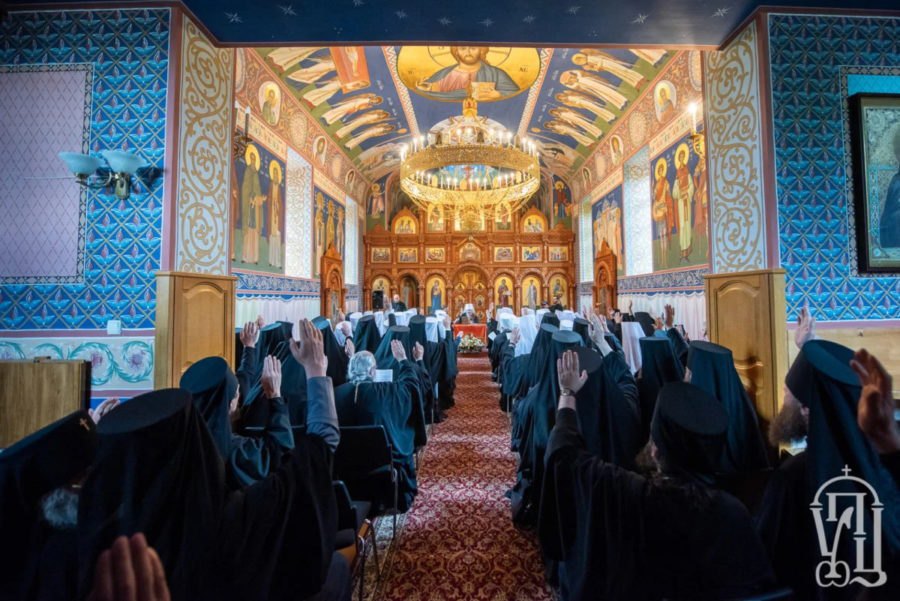
"Stalin decided to move the centre of Orthodoxy to Moscow – nothing happened. And Putin began to call Bartholomew "the head of the Istanbul parish"
With the change of the statute, the UOC-MP is stuck "in the middle of nowhere". On the one hand, it says it has no communion with the Russian Orthodox Church, and on the other hand, we remember that it also broke off communion with the Ecumenical Patriarchate at the instruction of the ROC. The latter was confirmed at the same May Council. What, from the canonical, church point of view, can be the mechanism of solving the problem with the current status of the UOC-MP?
First, we have to discuss what this status is. It is, as the canonists say, "a church or religious structure with an unregulated status". But in practice, this means that the Ukrainian Orthodox Church (formerly of the Moscow Patriarchate) says that it is not subordinate to the Moscow Patriarchate, but is part of the family of Orthodox peoples, the fullness of Orthodoxy, speaking more precisely in ecclesiastical language, through the Russian Church. And they refer to the missive of Patriarch Alexy II. Not from the canonical point of view, but from the socio-political point of view, they wink, so to speak, to Moscow, saying: "Well, you know what position we are in, encircled by outrage, so we did what we could do." And, obviously, Moscow accepted it and said: "We understand that the junta is putting pressure on you. There will be no scandal, but we will take away the Crimean dioceses from you, you will not mind, will you?... Because your canonical status hangs on a thread or a very thin rope, which we hold in our hands. We can cut it if we want. Therefore, let us also have the dioceses of Rovenky. And then we will see how the situation develops."
But the situation can develop in different ways. I just don't understand how both priests and bishops explain to their faithful that the Russian invaders came, cut, robbed, raped, but on Sunday you can take communion with them. But you cannot take communion with those who will liberate you and who belong to the OCU, because this was our decision, we broke off Eucharistic communion with them and with Constantinople. By the way, no-one did this except the UOC-MP. No-one, only the Russian Orthodox Church and part of the Ukrainian Orthodox Church of the Moscow Patriarchate. Even such loyal, so to speak, allies of the Moscow Patriarchate as the Serbs did not break communion with Constantinople, because they know what it means.
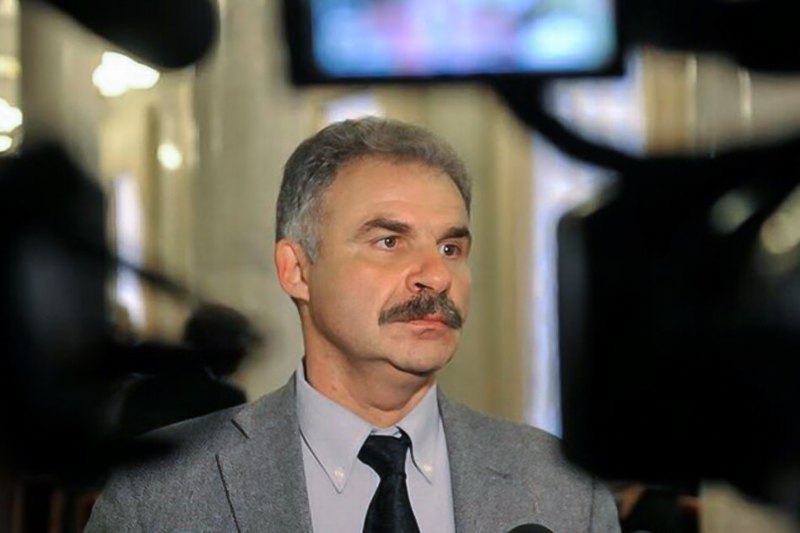
As an aside, no Russian ruler, except Putin and Stalin, has ever undermined the importance of Constantinople. Peter I humbly asked it to allow a synod and abstinence from fasting during the Prussian campaign, and all the tsars recognized the authority of Constantinople, because they had a slightly different canonical consciousness. Only Stalin decided to move the centre of Orthodoxy to Moscow, which did not work out. And Putin began calling Bartholomew "the head of the Istanbul parish", asking Erdogan to help him move the centre of Orthodoxy to Moscow. No-one else has resorted to this.
And I do not understand how the priests, bishops of the UOC-MP explain this to their faithful. I asked some of them, they just want to dodge this question because there is no answer to it.
Can this situation be resolved somehow? For example, will the UOC-MP apologize to Constantinople and try to establish communication on its own?
As Berdyaev said, Orthodoxy is the least based on jurisprudence. For example, there is a code of canons of Catholic churches, a code of canons of Eastern Catholic churches, where everything is clear. In Orthodoxy, there is no such jurisprudence, but there is an understanding of oikonomia, that is a lenient attitude to the letter of canon law, when it is for the benefit of the church.
Let's look at this from a different angle. Canons are, in secular language, instructions, not even laws. There is the Constitution – the Gospel, there are dogmas – let's say, the basic laws, and the canons can change. And this is very broadly used in Orthodoxy. For example, the Moscow Patriarchate is very selective in its approach to the canons. It approaches everything very selectively. When it was necessary, it criticized ethnophyletism, when it was not necessary, it said that ethnophyletism is important, not condemned by anyone except Constantinople. That is, they are very flexible and very elastic. And for the good of the church, of course, they should start with a dialogue with their brothers and sisters from Ukraine.
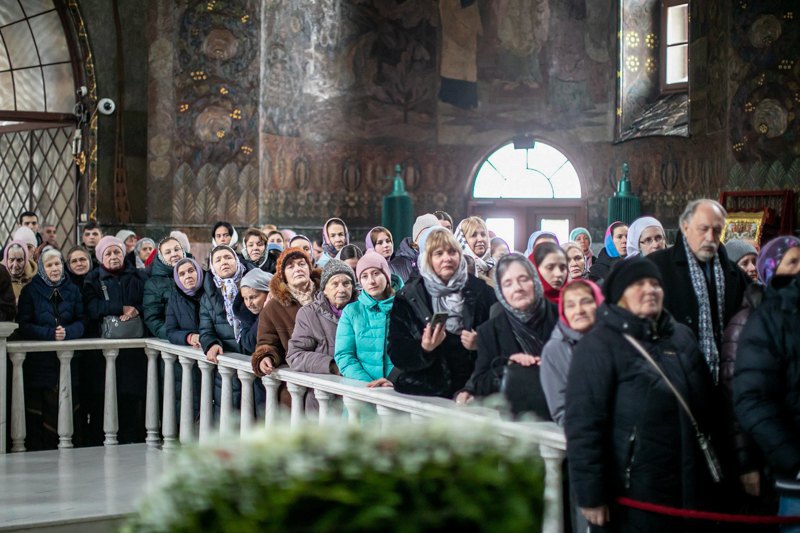
There is a lot of talk about this Orthodox dialogue now. Is it possible between the UOC (formerly of the MP) and the OCU at this stage, in your opinion? And if so, how should it take place?
Orthodox people would say that everything is possible with God's will, but in this case I do not see... On the contrary, I see the possibility and desire and desire for such a dialogue among ordinary priests, especially among those who have nothing to share – flock, influence or something else. Such a dialogue is not only possible, but there are ways to invent mechanisms for such a dialogue.
At the highest level it is more difficult, but we understand that there are no precautions not only of dogmatic or, especially, evangelical dimension, but even canonical ones. Sometimes ideologies are spread which the apostle Paul called, forgive me for being politically incorrect, "wives' tales". For a priest who read the Holy Scriptures and studied in the seminary, it is simply wrong to spread such things.
There are many, many different models where dialogue and deeper communication can take place without these people, these clergymen losing anything of their property or their influence. This requires only the will, the consciousness that goes beyond the bubble in which many of them live. Because when we go into this bubble, it seems that everything is impossible.
Let me remind you that Vladimir Solovyov (Russian philosopher, theologian of the late XIX century - Koshkina) began to study the differences between Orthodoxy and Catholicism. When he began his study, he believed that there were no special differences. When he delved deeper, he realized that there are huge differences that cannot be overcome in any way. And only when he studied for seven years how the split occurred, how the great schism took place, what the differences are, how they crystallized, he again realized that these differences were created by people. And that, as one religious figure said – by the way, the Metropolitan of Kyiv – the fences between Christians do not reach the sky, that is, they are made by human hands. So, of course, I think that everything is possible here, having the evangelical consciousness and the will for such changes.
If the unification, purely hypothetically, does take place, what should be done with openly pro-Russian priests and hierarchs of the UOC-MP? Or with persons of dubious reputation? It is likely that some people are closely connected with the Russian special services, this is a traditional story for this church. How to identify them, how should the vetting process look like?
I think that these are the actions being taken now by the Security Service of Ukraine and the Interior Ministry are aimed at isolating, identifying such characters. This is the first thing. Second, I have to disappoint you because the church is not a sect. I am talking about a sect in the sociological dimension, in the sociological sense, not in the invective or quarrelsome sense. The church accepts everyone: communists, non-partisans, nationalists, and everyone goes there. At the baptismal chalice they stand together, people who are absolute political opponents. In the church there will always be people of very deep consecrated life and people who are not very worthy. But that is why the church exists on earth, not only does it lead a person to salvation, it also transforms him or her.
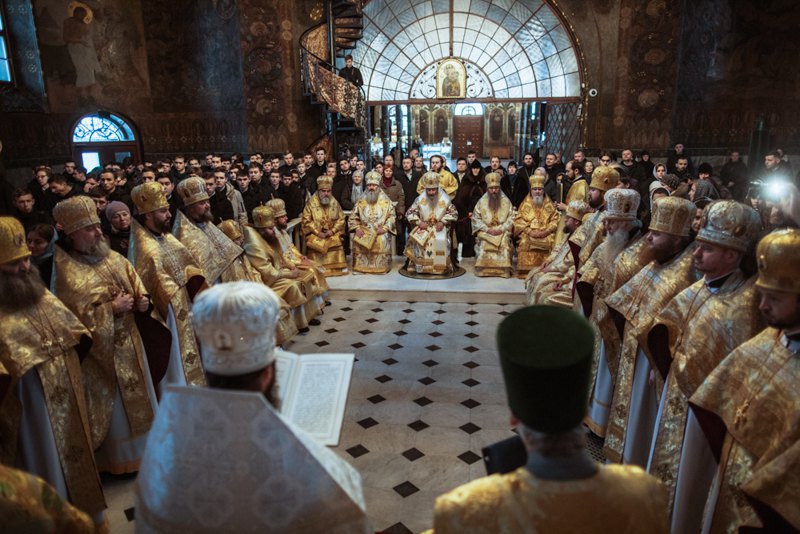
I mean not ordinary parishioners, but the leaders of the church, its hierarchs. What to do with open Russian supporters or spies?
I have already said about spies. But look, we do not know what this unification will be like. We only know that if Ukraine exists, it has a local church. This is logic. The local church is a church in a place, it is called Ukrainian not because it is created and serves ethnic Ukrainians, it serves this place, in this country, the borders of this country are outlined, and it includes all Orthodox believers. We do not know what this unification will be like, how it will happen, under what conditions. We only know that Christians are required to take the first step, to extend a hand to each other.
What is now being said in the Moscow Patriarchate that the OCU is a terrible enemy is being repeated, emphasized, stressed – a very unchristian position. If this dialogue begins, if they extend their hands to each other, then, of course, they will find a solution, this is the second thing.
Thirdly, if there are absolutely odious characters, the church also has mechanisms. They are retired, certain punishments are imposed on them (disciplinary punishment - Koshkina), they are sent to monasteries, somewhere else. It all depends on the church itself, but I emphasize and repeat that we do not yet know what this unification will be like. We only know that in Ukraine there should be a single local Orthodox church, according to, so to speak, ecclesiastical logic.
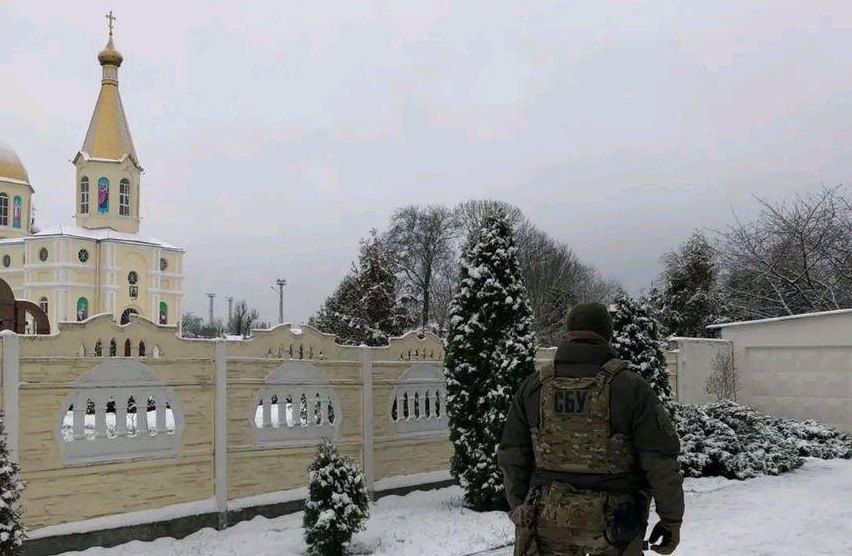
Do you think the OCU is ready for such a dialogue? There are also different sentiments there.
As far as I understand, the hierarchy of this church says that it is ready for dialogue without preconditions. That is, they are ready to say tonight that, let's say, Bishop Ioan is blessed to conduct a dialogue with the UOC-MP. The UOC-MP is neither ready nor willing to hold such a dialogue.
They say it bluntly that we will not enter into this dialogue. They even say that it was the OCU that became one of the triggers that started the war. They are right, in principle. They are right, because the desire to have our own church, our own language, our own statehood, our own flag, our own dignity, etc. is really the reason why the war began. But to condemn it is already a certain position. That is, they say that we do not need our church, our language, our state, all these other things that make up the backbone of Ukrainian identity. And this is why the war started, and this is what should have been avoided.
Of course, there are people in the OCU who do not really understand how they will be in one church with such people who deny Ukrainian identity. It will be difficult for them, so this dialogue will not be easy in any case.
And what should be the role of the Ecumenical Patriarchate? Can it act as a moderator or initiator, or will it wait until it is addressed? What is the right way?
The Ecumenical Patriarch made his position public. He said that he invited all the bishops with his own signed letter to dialogue and to the unification council in December 2018. As we know, the vast majority of the bishops of the Moscow Patriarchate in Ukraine ignored this letter. Now his position is that there is a local Orthodox Church in Ukraine, that is, it recognizes one Metropolitan of Kyiv. This Metropolitan of Kyiv is Metropolitan Epifaniy.
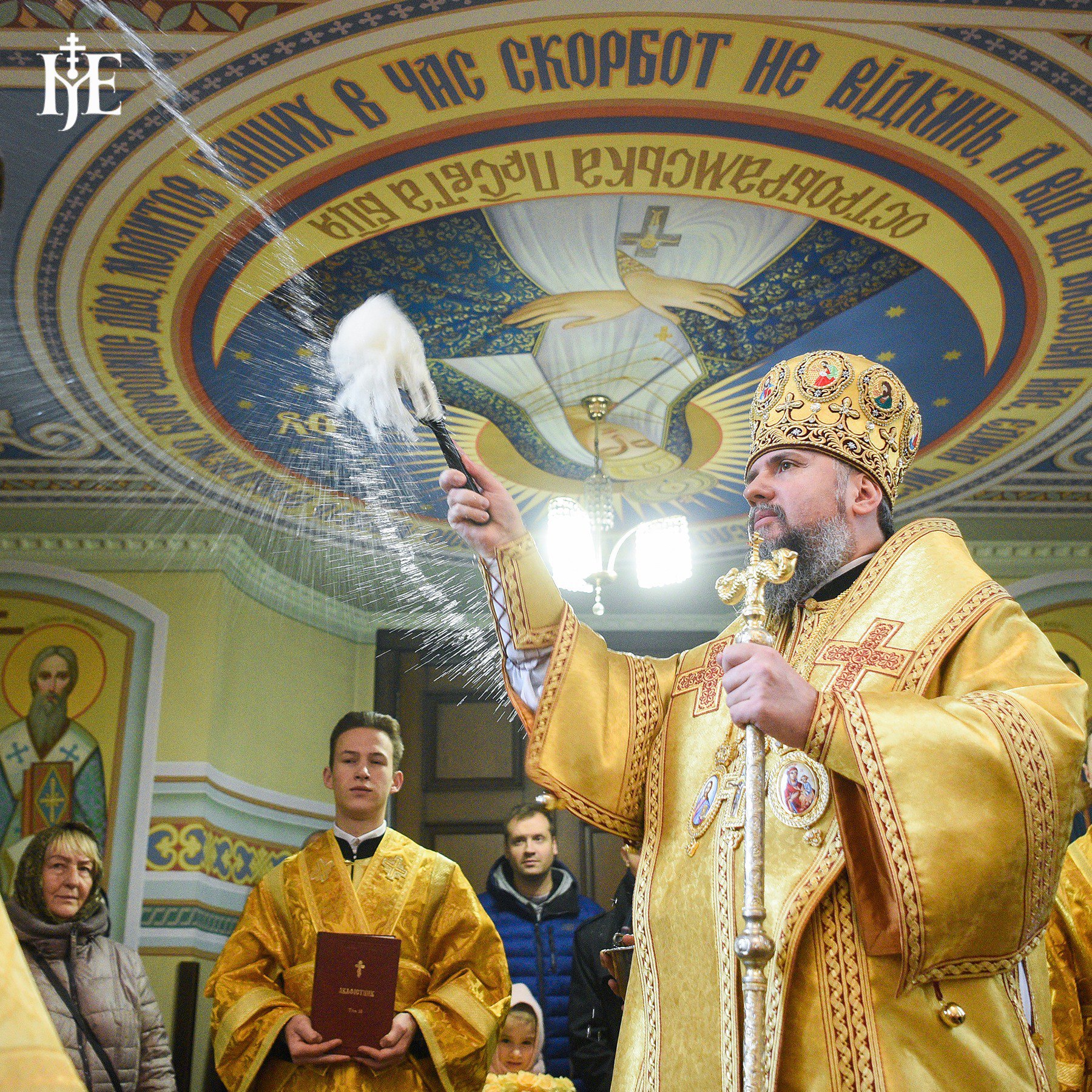
He does not say that he does not recognize Metropolitan Onufriy as an Orthodox bishop, but he does not recognize his title. He said: "I recognize your ordination, that is, I recognize your consecration, you are a valid bishop who is located in the city of Kyiv." Just like the Metropolitan of Poltava, the Metropolitan of Dnipro, or the Metropolitan of Zaporizhzhya are where they are, but they are not the Metropolitans of Zaporizhzhya, Poltava, and Dnipro, respectively.
So, there is this Metropolitan, he is not talking about the canonical territory, which Patriarch Kirill liked to refer to so much, but Ukraine, according to the Tomos of the Orthodox Church of Ukraine, is the territory where the Metropolitan of Kyiv has the power. All issues that arise in this church, Orthodox field should be resolved with him. For example, it is impossible to invite, say, for example, the Bulgarian Metropolitan, if I want to invite him not as a private person to Ukraine, this invitation must be confirmed by Metropolitan Epifaniy. And this is all absolutely clear.
But, of course, the Patriarch of Constantinople has a special mission in the Orthodox world. He is a "gathering centre". He does not have such power as the Roman bishop, but he is responsible for the entire Orthodox world. And, of course, when there were problems, for example, in the Bulgarian Church or in the Jerusalem Church, or in some other churches, or when it was necessary to restore the Albanian hierarchy, which was completely destroyed by Enver Hoxha (Albanian dictator - Koshkina), he provided his assistance. And I think that if there were an appeal to him, he would have provided assistance in this case.
But now there is a situation that must be resolved by the Ukrainians themselves. Here we are entering a more global context, because the fact that the Moscow Patriarchate, and before that the Synod, tried to undermine the position of the Ecumenical Patriarch is an issue that concerns not just administrative borders, not just what is called the measurement of honour or glory. It concerns the understanding of Orthodoxy in general and the understanding of Christianity. To put it simply: where is the centre in Orthodoxy? We say that the Council is the centre of Orthodoxy. Who convenes this council? Why, for example, is the power of the Bishop of Sofia or the Bishop of Tbilisi higher than the conciliar mind of the Orthodox Church and why did they not attend the Council in Crete, where the fate of all Orthodoxy was to be decided?
About Crete, there is a slightly different story, and it was 2016, let's not get distracted.
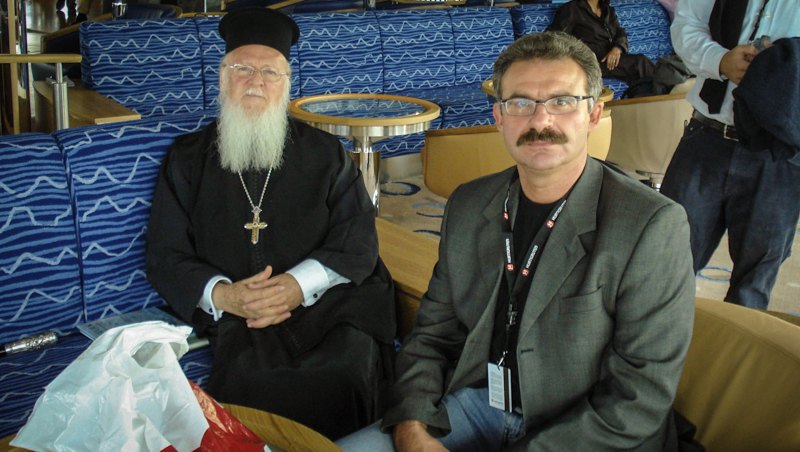
"Moscow uses money, pressure, dirt, anything. They have a significant influence as far as religious matters are concerned"
Volodymyr Zelenskyy said that he consults with you on church issues. How well do you think the president understands the essence of the problem that the state is facing today?
First of all, I cannot say that these are regular consultations. But we have had conversations with the president, and, of course, he understands the situation better than I imagined.
How did he do it? What sources of information did he use?
I do not know what sources of information he uses, but he is quite deeply familiar with what is happening in the religious sphere. He understands what role Moscow plays in the religious situation, its attempts to influence.
As it seems to me, he understands that when a foreign state interferes in the internal church affairs in another country, that is, in ours, on a large scale and grossly, it must be opposed.
I would like to briefly discuss the so-called internal kitchen of the UOC-MP. Actually, who, according to your understanding, is making strategic decisions there now? Is it Onufriy? Onufriy plus Pakanych? Or some group? Or are decisions made in Moscow, and they are simply sent to Kyiv?
I cannot know this for sure. I know that the hierarchy of the UOC-MP has been trying to distance itself from the Moscow centre after 24 February. I also know that there are various centres of influence there, and I know – this is very important – that the problem is not that they receive instructions, but that... Do you remember how Sholokhov said: "We are accused that we, Soviet writers, write on the instructions of the party. This is not true, we write at the direction of our hearts, and our hearts belong to the party." I think that the situation is approximately the same here. And in some cases, the hierarchs of the UOC-MP are sincere in their actions because they do not see a difference with such a Russian, Moscow face.
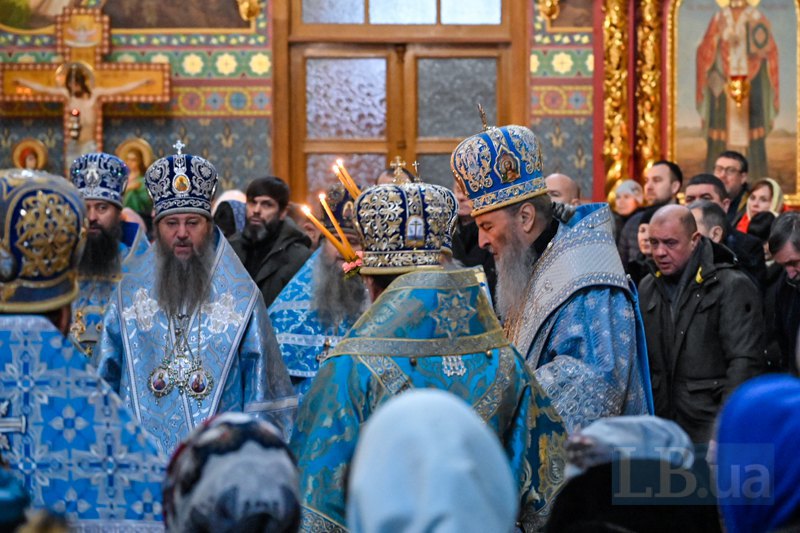
How many and what groups of influence do you see within the UOC-MP?
In fact, in every Orthodox Church there are groups of fellow countrymen, there are groups that belong to a certain, let's say, school. That is, many bishops came from a certain monastery. There are followers of a certain elder...
Nikodim Rotov, for example. He was not an elder, but his influence is enormous.
Nikodim Rotov was a large-scale figure, and to a large extent he predicted what is happening now in Russia. He said, and it is even published somewhere in his memoirs, among his confidants: "Brothers, I obviously will not live, but you will definitely live, when the meetings of the Politburo of the CPSU Central Committee will begin with the singing of 'Hail, Heavenly King'." That is, he predicted that the evolution of the rebirth of the communist regime in Russia would take place in such a Chekist-Orthodox way. Of course, he was a powerful figure, but he has been dead for almost 45 years.
Apart from this worldview influence, are there any other factors of Moscow's influence on Ukrainian hierarchs? Money, dirt, maybe something else?
I think that Moscow is not picky about the means. Moscow uses money, pressure, compromising material, anything it can. Because they have a significant influence as far as religious matters are concerned, and this topic is described even in monographs about the Soviet, then Russian special services and the church. They do it with special pleasure, I would say – with special cynicism.
